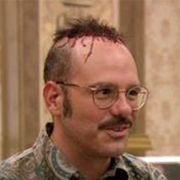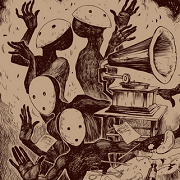(Thread IKs:
dead gay comedy forums)
|
AnimeIsTrash posted:How did the communist governments handle soldiers being reintegrated into society after the revolution? Are there any first hand accounts from soldiers? i haven't read this but it probably contains some info https://warwick.ac.uk/fac/soc/economics/staff/mharrison/public/pp2011postprint.pdf not the greatest source but it's probably a lightly-tread topic by western academics i say swears online has issued a correction as of 21:22 on Sep 23, 2023 |
|
|
|

|
| # ? May 20, 2024 17:09 |
|
i say swears online posted:i haven't read this but it probably contains some info
|
|
|
|
i say swears online posted:i haven't read this but it probably contains some info idk what this means
|
|
|
|
AnimeIsTrash posted:idk what this means it means i say swears uses an adobe acrobat extension for chrome
|
|
|
|
it is a very serious and rigorous academic paper
|
|
|
|
In his recent discussion [...] about socialism Ethan Klein asked some pretty common questions about socialism and communism’s practical feasibility. These are the kinds of issues that are raised by the average person who has never read any Marx and does not have much knowledge about the theory and practice of the socialist movement, and it is quite understandable why they would raise these questions. To someone born and raised in a capitalist society, human nature appears to be a certain kind of way essentially, and once this essence is fixed, every other objection to socialism and communism flows from it. If human nature is to be greedy, avaricious, purely self-interested, self-calculating, vicious, hateful, violent (because greed begets all these other vices)—then of course you can never have a social and economic system that requires a different kind of human nature, one characterized by virtues such as empathy, solidarity, sacrifice for the greater good, selflessness, the things that provide the foundation for cooperation and harmony in all aspects of social life. Ethan, like many, believes that human nature is essentially greedy, and hence it is impossible to ever have a functioning socialist and communist society. Liberal and conservative ideology is founded on this very assumption. Human greed and self-interest are rendered as rational in economics and the social sciences more broadly, as expressed in the abstract model of the homo economicus, wherein humans are turned into a rationally self-interested calculation machine. Marx was familiar with this assumption and devoted a considerable part of his theoretical project to dismantling it. There are many arguments he assembles for this task, but I will simply point to the core around which all the others revolve, and which has been expanded by other Marxist thinkers. There is no such thing as a fixed, unchangeable, universal “human nature”, and there never has been. The homo economicus, the rationally self-interested greedy calculation machine, is a product of the economist’s mind and bears very little relationship to humans as they live in the real world. No, human nature is essentially variable across time and space, meaning that there is no “nature” at all as it implies immutability. Or to put it in terms that Marx himself suggested, it is human nature to make and remake its own nature. How is this accomplished? Herein lies Marx’s genius, for it was this discovery of his that formed the foundation of a modern materialist conception of history and social life that solved a problem philosophers had been struggling with for centuries. If you want the detailed answer you can read it in Plekhanov’s excellent book on the subject. The problem was as follows: does the constitution and government in a society form human nature—that is, the behavior of humans in said society—or is it rather human nature that forms the constitution and type of government? Philosophers went back and forth on this. Idealists preferred the latter answer, that there was something in human nature from which a constitution and government took shape. Materialists preferred the former answer, that it was the government and constitution that fundamentally shaped human nature. But this was a pre-Marxist form of materialism which was unable to provide a satisfactory answer to the problem of historical change. If the government forms human nature, then how do you explain changes in government over time? Why does a republic become a tyranny and a republic again? Why is a monarchy overthrown in a revolution here, but not there? Why are there different forms of governments and constitutions across time and space rather than all of them being of one kind? The picture, the conceptual framework, is static. There is no movement in it. As later Marxists would say, it was a form of materialism that was not historical in nature. There was a missing element, a missing category that would make the still photo a moving picture, that would make the machine run properly and explain how change happens and why there is this kind of government there, that government here, and in explaining politics and its movements without having to rely on a static concept of human nature, thereby also explaining the myriad of ways in which human nature has been expressed throughout history. The missing element was the means of production, or to paraphrase Plekhanov, the artificial limbs of humanity. Humans use tools to change their environment, and in so doing they change their own nature. And as these tools develop and advance, the entire social edifice that was built on top of them also develops and advances and undergoes transformations. Marx: “The hand-mill gives you society with the feudal lord; the steam-mill society with the industrial capitalist.” Further questions remain as to how these artificial limbs, the means of production, develop in each particular historical moment or stage. Marx wrote a book explaining it for its capitalist phase. There are in scholarship several strains of thought on the matter, some that prioritize the role of institutions, others that stress the importance of a ‘scientific culture’, but the general consensus among all of them is that the specific material and social conditions of a particular society are the foundation of every kind of technological development. This is uncontroversial even among non-Marxists. The only difference is that they do not take the next step of seeing how this confirms the broader materialist understanding of human nature as being essentially variable and a product of humans’ own making, and that this has deep implications for our understanding of capitalism, socialism and communism. Now that all the abstract theoretical stuff is out of the way, we can answer Ethan’s “human nature is to be greedy” objection. No, human nature is not universally, statically greedy or anything else. Yes, there are obviously greedy humans today and there have been throughout history. But there have also been their opposite. In fact, greed and anti-social self-interest have been the aberration, not the norm, including in today’s capitalist society which is systemically set up to cultivate greed. Marx again: quote:The bourgeoisie has stripped of its halo every occupation hitherto honoured and looked up to with reverent awe. It has converted the physician, the lawyer, the priest, the poet, the man of science, into its paid wage labourers. The bourgeoisie has torn away from the family its sentimental veil, and has reduced the family relation to a mere money relation. I couldn’t resist quoting this at some length as it is beautifully written. For more by Marx on how capitalism has distorted all human relationships see this piece by him. Despite Marx’s poetic exaggerations, the cash-nexus has not replaced and subsumed the altruistic, cooperative expressions of human nature. Take for example the family. The norm, yes even in our capitalist society, is to suspend the principle of egoistic self-calculation in that domain. Parents do not typically see their children as investments from which they expect a return. They do not count up the amount of money they spend on food and clothes for them and expect them to have it paid back in full as soon as they can find a job. When their child is hurt, their first thought isn’t “is it in my rational economic self-interest to help them?” And this is no small part of social existence to suspend the rules that flow from Ethan’s “human nature is greedy” dictum. Everyone has a family, and we spend a significant part of our times in the family domain. These rules of greed are also suspended in the sphere of friendship. When a friend is in need, we do not activate some mythical rational calculation machine to do a cost-benefit analysis of helping them, and then decide to not do so when it costs more than it benefits us. At least, only sociopaths do that, and despite their promotion in the social hierarchy under capitalism exactly because they do not suspend these rules in any sphere of life, this is not characteristic of the vast majority of humanity. In fact, this cooperative, altruistic impulse is so widespread and common that it is also socially enforced, with anyone breaking these norms being frowned upon and it being considered a taboo. The Marxian economists and behavioral scientists Samuel Bowles and Herbert Gintis have done extensive research on these areas of social life which demonstrate cooperation, altruism and reciprocity, thereby revealing the hollowness of the capitalist conception of human nature as greedy. The title of their main book containing a lot of this research shows the alternative conception: A Cooperative Species (link to a PDF of the book here, and I also highly recommend listening to some of Bowles’ talks). As Bowles and Gintis point out, and as is confirmed by research in sociology, psychology and anthropology, not only is there no such thing as a singular, fixed, universal “human nature”, but also its particular expressions, as greed or altruism, are fundamentally affected by the material and social contexts, or conditions, in which the individual finds themselves in. Everyone knows about the Stanford prison experiment and the malleability of human behavior through their presence in particular kinds of contexts has been replicated countless types. There’s a famous study where people are asked to estimate the length of something, and when they hear others give a longer or shorter estimation they go along with whatever the prevailing answer it, skewing their own answer in this or that direction. When you’re waiting to cross a street and you see someone else crossing it, you have the impulse to follow along, as this gets stronger the more people there are. We are fundamentally shaped by our environments, and Marx’s genius lay in pointing out that the nature of our environments are in turn fundamentally material in kind, which relies on economics and a particular configuration of it that shapes it, and that this is ultimately of our own making. Again, we make our own natures, hence why it is so variable and multifaceted and we can go from acting close to the model of the calculation machine when we’re at a market and trying to buy something, as we’re forced to by the implicit and explicit rules of that domain, but we move to its diametrically opposite when we’re around friends and family and co-workers and fellow students. The aim of the socialist and communist is to further expand this cooperative, altruistic, solidaristic aspect of our natures, such that we not only see our close friends and family in this light and treat them accordingly, but also those who are further removed from us, beyond our neighborhood, workplace, city, nation. This requires reshaping our material environments in such a way that this aspect of our human nature is further cultivated rather than stifled and distorted at every step by the cash-nexus, by the money-relation that forces us to feel ill at ease, alienated if you will. Scarcity is the fundamental problem here, argued Sartre, and Marx would agree: quote:In a higher phase of communist society, after the enslaving subordination of the individual to the division of labor, and therewith also the antithesis between mental and physical labor, has vanished; after labor has become not only a means of life but life's prime want; after the productive forces have also increased with the all-around development of the individual, and all the springs of co-operative wealth flow more abundantly – only then can the narrow horizon of bourgeois right be crossed in its entirety and society inscribe on its banners: From each according to his ability, to each according to his needs! The more scarcity and the division between mental and physical labour is overcome through the latter’s replacement by machines, the more we depart from the realm of necessity and get closer to the true realm of freedom: quote:In fact, the realm of freedom actually begins only where labour which is determined by necessity and mundane considerations ceases; thus in the very nature of things it lies beyond the sphere of actual material production. Just as the savage must wrestle with Nature to satisfy his wants, to maintain and reproduce life, so must civilised man, and he must do so in all social formations and under all possible modes of production. With his development this realm of physical necessity expands as a result of his wants; but, at the same time, the forces of production which satisfy these wants also increase. Freedom in this field can only consist in socialised man, the associated producers, rationally regulating their interchange with Nature, bringing it under their common control, instead of being ruled by it as by the blind forces of Nature; and achieving this with the least expenditure of energy and under conditions most favourable to, and worthy of, their human nature. But it nonetheless still remains a realm of necessity. Beyond it begins that development of human energy which is an end in itself, the true realm of freedom, which, however, can blossom forth only with this realm of necessity as its basis. The shortening of the working-day is its basic prerequisite. Pay careful attention to the final sentence about the shortening of the working-day being a step toward this realm of freedom. As I noted in my piece on socialism, the Marxist project has never been the absurd caricature of a utopian fantasy to be imposed immediately, as Ethan suggested. The same materialist analysis that leads us to recognize that human nature is variable also leads us to a pragmatic understanding of the particular viable steps that can be taken toward freedom in each circumstance. If Ethan disagrees with the end-point but sees value in some of these steps as he said he does, like for example increasing the minimum wage and other elements of what he sees as a social democrat program, there is a basis for cooperative work, and perhaps through that he can change his mind and come to see the limitations of a politics that believes a minimalistic socialism can thrive in capitalist system rather than always and inevitably being drowned by it as has happened to the welfare states since the neoliberal revolution of the 1970s after owing their rise to the October Revolution. A final point on the fundamental incoherence of the fixed conception of human nature. When [...] asked [...] about why social democracies were prone to failure, [Ethan Klein] responded with the same flawed conception of human nature being greedy. This is a non-response, and can be used to explain away anything. When welfare states are formed and maintained over several decades, suddenly human nature’s intrinsic greed ebbs, but then it comes back and flows before it ebbs again. Moreover, any regulations of the market still in place are elements of human nature not being greedy co-existing with human nature being greedy. But you have then admitted that there is no single fixed universal human nature. The entire position is undermined, but not in favor of a coherent framework of analysis that has explanatory power, like the Marxist materialist one, but for some arbitrary model of “when I like it, human nature is being good, when I don’t like it’s human nature being bad.” The explanation of the dismantling of welfare states from the Marxist materialist perspective is a thorough, detailed, systematic one. There is a whole branch of scholarship devoted to the rise of neoliberalism in its various forms. See for example the works of sociologist Loïc Wacquant who focuses on the establishment of the neoliberal carceral state, and the work of Mirowski and Slobodian on how the neoliberal “thought collective” was formed and advanced its policies. And there are detailed analyses for how this operated on a national, even regional basis. This is how do you serious analysis of events in the real world. You don’t just wave things away by referencing some abstract conception of human nature which the moment it hits reality blows apart into a million pieces.
|
|
|
|
gradenko_2000 posted:Superb post BTW, another reason why some Marxists brought psychoanalysis (and a bunch of psychoanalysts went towards Marxism) was the realization that both forms essentially figured out the dialectical relationships of human nature in different spheres. Freud essentially said that civilization is the root cause of conventional neurosis; Marxist psychoanalysis elaborates on how material circumstances form the material structure from which the subject emerge, and why later on even non-Marxist psychoanalysts agreed adamantly with communists/socialists about "human nature" being a vacuous concept. Later on, Lacan himself posited that more dramatically by directly positing that once brought into language (itself a structure), there could be no such thing as "natural" to anything a person does, because the forming of a subject is itself the unbecoming of anything instinctual or natural, except to things that are absolutely autonomic (like breathing). We can literally put ourselves to death by self-inflicted starvation, for example.
|
|
|
|
if anyone asks me to explain how greedy humans could possibly support socialism, i challenge them to explain how it is that greedy humans tolerate capitalism, which demands that the majority of the population donate the surplus value they generate day after day to some rear end in a top hat who bosses them around and leaves them with scraps. isn't it in fact capitalism which runs on massive and totally unfounded altruism and self-abnegation?
|
|
|
|
Oglethorpe posted:i asked this in other threads but i've not read this book yet, but this guy just released a general history of modern china. i assume the cultural revolution will be covered crepeface posted:https://twitter.com/1804Books/status/1659617932672942087?s=20 fake edit: huh, there was an advertised book on the cultural revolution. seems like it's more focused on rural developments instead of an overview though quote:By Dongping Han
|
|
|
|
heard good things about Alessandro Russo's Cultural Revolution and Revolutionary Culture
|
|
|
|
FirstnameLastname posted:I made this post but i wanna put it here still a bit behind the thread, but this is an excellent articulation of the cybernetic mode of capitalism that I'm saving.
|
|
|
gradenko_2000 posted:Humans use tools to change their environment, and in so doing they change their own nature. And as these tools develop and advance, the entire social edifice that was built on top of them also develops and advances and undergoes transformations. Thank you for this post! Excellent article and this part in particular.
|
|
|
|
|
gradenko_2000 posted:The Marxian economists and behavioral scientists Samuel Bowles and Herbert Gintis have done extensive research on these areas of social life which demonstrate cooperation, altruism and reciprocity, thereby revealing the hollowness of the capitalist conception of human nature as greedy. The title of their main book containing a lot of this research shows the alternative conception: A Cooperative Species (link to a PDF of the book here, and I also highly recommend listening to some of Bowles’ talks). really good post. marx really was a genius seer. thanks also for the Samuel Bowles rec, he owns too: https://www.youtube.com/watch?v=ParPPYMzfQM
|
|
|
|
gradenko_2000 posted:homo reacharoundicus reminds me of how high school and college presented this concept: the totalitarian communists wanted to create a new "Soviet man" through the evil machinations of the State, corrupting human nature like Melkor twisting his elvish captives into orcs
|
|
|
|
quote:[Immediately after the February Revolution, when commodities and securities were extremely depreciated and utterly unsaleable, a Swiss merchant in Liverpool, Mr. B. Zwilchenbart — who told this to my father — cashed all his belongings, travelled with cash in hand to Paris and sought out Rothschild, offering to participate in a joint enterprise with him. Rothschild looked at him fixedly, rushed towards him, grabbed him by his shoulders and asked: "Avez-vous de l'argent sur vous?" — "Oui, M. le baron." — "Alors vous êtes mon homme!" ("Have you money in your possession?" — "Yes, Baron." — "Then you are my man!") — And they did a thriving business together. — F.E.] lmao
|
|
|
|
If you like his notes, Engels' letters are goddamned amazing
|
|
|
|
quote:Talk about centralisation! The credit system, which has its focus in the so-called national banks and the big money-lenders and usurers surrounding them, constitutes enormous centralisation, and gives to this class of parasites the fabulous power, not only to periodically despoil industrial capitalists, but also to interfere in actual production in a most dangerous manner — and this gang knows nothing about production and has nothing to do with it. The Acts of 1844 and 1845 are proof of the growing power of these bandits, who are augmented by financiers and stock-jobbers. if only we had listened  also lmao at engels basically describing MMT a century early as an aside in chapter 34
|
|
|
|
I don't know where else to post this, but here seems appropriate. I've been thinking lately about Billy Bragg's rewrite of The Internationale and something has always bothered me about the first stanza.Bill Bragg posted:Stand up, all victims of oppression I've never liked how he puts rights above material conditions in the third and fourth lines. I get what he's going for, but something about it feels very out of sync with a socialist workers movement seeking to repossess wealth from the ownership class. I also don't like what he did in that last section. I don't disagree with the idea, but it feels too much like theory language for what is supposed to be an anthem. I prefer the original for that section. I'm no poet, but I'd go with something more like: quote:Stand up, all victims of oppression The rest is really good in my opinion. It's just a shame that the first stanza kind of drags down what I think is a very good update of the lyrics. Billy Bragg posted:So come brothers and sisters
|
|
|
|
i like your rewrite fwiw i dont think you're interpreting the 'cling to your possessions' as a disregard of material conditions though, i think its the opposite in fact.
|
|
|
|
can anyone provide a primer on the chapters regarding differential and absolute ground rent. the sense of the argument that i'm getting is that "different lands have different productivity/fertilely that produce different amounts of surplus value" but only banging my head against differential rent 1 so far
|
|
|
|
Raskolnikov38 posted:can anyone provide a primer on the chapters regarding differential and absolute ground rent. the sense of the argument that i'm getting is that "different lands have different productivity/fertilely that produce different amounts of surplus value" but only banging my head against differential rent 1 so far Not quite there yet. Had to take a break when they introduced Cost and production prizing (is that what they call it in English). I see why they relaxed the restraints that within statistical limits only equal values are exchanged, but it still makes me wary. Need to think about it a bit more, but doesn't this risk ungluing use value from exchange value and the whole process to quantify value in the first place?
|
|
|
|
vol.3 is pretty incredible...I have never in my life understood why interest existed, prolly bc whenever I've tried to grapple with it I had previously gone to bourgeois educational sources. Only a bit into Part V, but as Marx outlines the ultimate alienation of capital into its own commodity that miraculously produces value of its own accord, more and more of the ruling class's social outlook makes sense. Since for the generations in charge of steering capital they have come completely unmoored from the social relations required for their capital to actually create that surplus value...they just throw money into a hole and profit comes out, for as long as they've breathed. Psychotic
|
|
|
|
On pg 385 of the version I'm reading he says "Money is now pregnant.". a perverse phrase that is going to stick with me for a while lol.
|
|
|
|
ive tried like three times before but this time I’m actually past the first section of capital vol 1. about half way through so far and it’s actually become very funny reading
|
|
|
|
just laughed out loud when he made fun of some other economist for saying that labor should be thankful to the capitalists for reducing the necessary labor time, and to repay the capitalists he should agree to work 15 instead of 12 hours
|
|
|
|
for real some of the finest literary moments from Marx and Engels are when they just going full dunking mode. from a previous postKarl Marx, Capital posted:This has allowed the illusion to arise that all commodities can simultaneously be imprinted with the stamp of direct exchangeability, in the same way that it might be imagined that all Catholics can be popes... This philistine utopia is depicted in the socialism of Proudhon, which, as I have shown elsewhere, does not even possess the merit of originality, but was in fact developed far more successfully long before Proudhon by Gray, Bray, and others. Even so, wisdom of this kind is still rife in certain circles under the name of 'science.' No school of thought has thrown around the word 'science' more haphazardly than that of Proudhon. karl fuming up about economists posted:Truly comical is M. Bastiat, who imagines that the ancient Greeks and Romans lived by plunder alone. For if people live by plunder for centuries there must, after all, be something there to plunder; in other words, the objects of plunder must be continually reproduced. It seems, therefore, that even the Greeks and Romans had a process of production, hence an economy, which constituted the material basis of their world as much as the bourgeois economy constitutes that of the present-day world. Or perhaps Bastiat means that a mode of production based on the labour of slaves is based on a system of plunder? In that case he is on dangerous ground. If a giant thinker like Aristotle could err in his evaluation of slave-labour, why should a dwarf economist like Bastiat be right in his evaluation of wage-labour? he then chose violence posted:Classical economy always loved to conceive social capital as a fixed magnitude of a fixed degree of efficiency. But this prejudice was first established as a dogma by the arch-Philistine, Jeremy Bentham, that insipid, pedantic, leather-tongued oracle of the ordinary bourgeois intelligence of the 19th century. Bentham is among philosophers what Martin Tupper is among poets. Both could only have been manufactured in England.
|
|
|
|
fart simpson posted:ive tried like three times before but this time I’m actually past the first section of capital vol 1. about half way through so far and it’s actually become very funny reading powering through the first part is ftw
|
|
|
|
it really takes off after that
|
|
|
|
It really is surprising how funny Vol. 1 is in particular, in a Sensible Chuckle way. I always laughed whenever Marx quoted some factory manager or whomever from an inspectors' report, and whenever they say something especially stupid to justify their exploitation of workers he just adds (!) next to it like "can you believe this mf"
|
|
|
|
MeatwadIsGod posted:It really is surprising how funny Vol. 1 is in particular, in a Sensible Chuckle way. I always laughed whenever Marx quoted some factory manager or whomever from an inspectors' report, and whenever they say something especially stupid to justify their exploitation of workers he just adds (!) next to it like "can you believe this mf" oh yeah lol there was a section i read today that had a few (!) and (!!) and even (!!!) lol
|
|
|
|
fart simpson posted:(!) and (!!) and even (!!!) lol gonna have to work this into my posting
|
|
|
|
gradenko_2000 posted:gonna have to work this into my posting
|
|
|
|
fart simpson posted:oh yeah lol there was a section i read today that had a few (!) and (!!) and even (!!!) lol Should use chess annotations imo. (?) and (??) and even (!?) are powerful.
|
|
|
|
Orange Devil posted:Should use chess annotations imo. chess, unlike reading capital, is for nerds
|
|
|
|
gradenko_2000 posted:gonna have to work this into my posting (!!!!!!!!!!!)
|
|
|
|
fart simpson posted:chess, unlike reading capital, is for nerds What's the (x) for Hard Agree
|
|
|
|
That'd be (!!)
|
|
|
|
fart simpson posted:chess, unlike reading capital, is for nerds
|
|
|
|
the bitcoin of weed posted:proletarian is french for propertyless. it specifically means a working class that has been enclosed and dispossessed of land and commons and forced to work for necessities, which is a very different power dynamic and mode of coercion than the peasantry faced This was super helpful to me, I’ve always just kind of lumped working class and proletariat together. Although these days in the modern west they are probably pretty equivalent as that self sufficient peasant class really doesn’t exist anymore.
|
|
|
|

|
| # ? May 20, 2024 17:09 |
|
Demon_Corsair posted:This was super helpful to me, I’ve always just kind of lumped working class and proletariat together. yeah ive never seen a serious class analysis of america or the west writ large
|
|
|


































